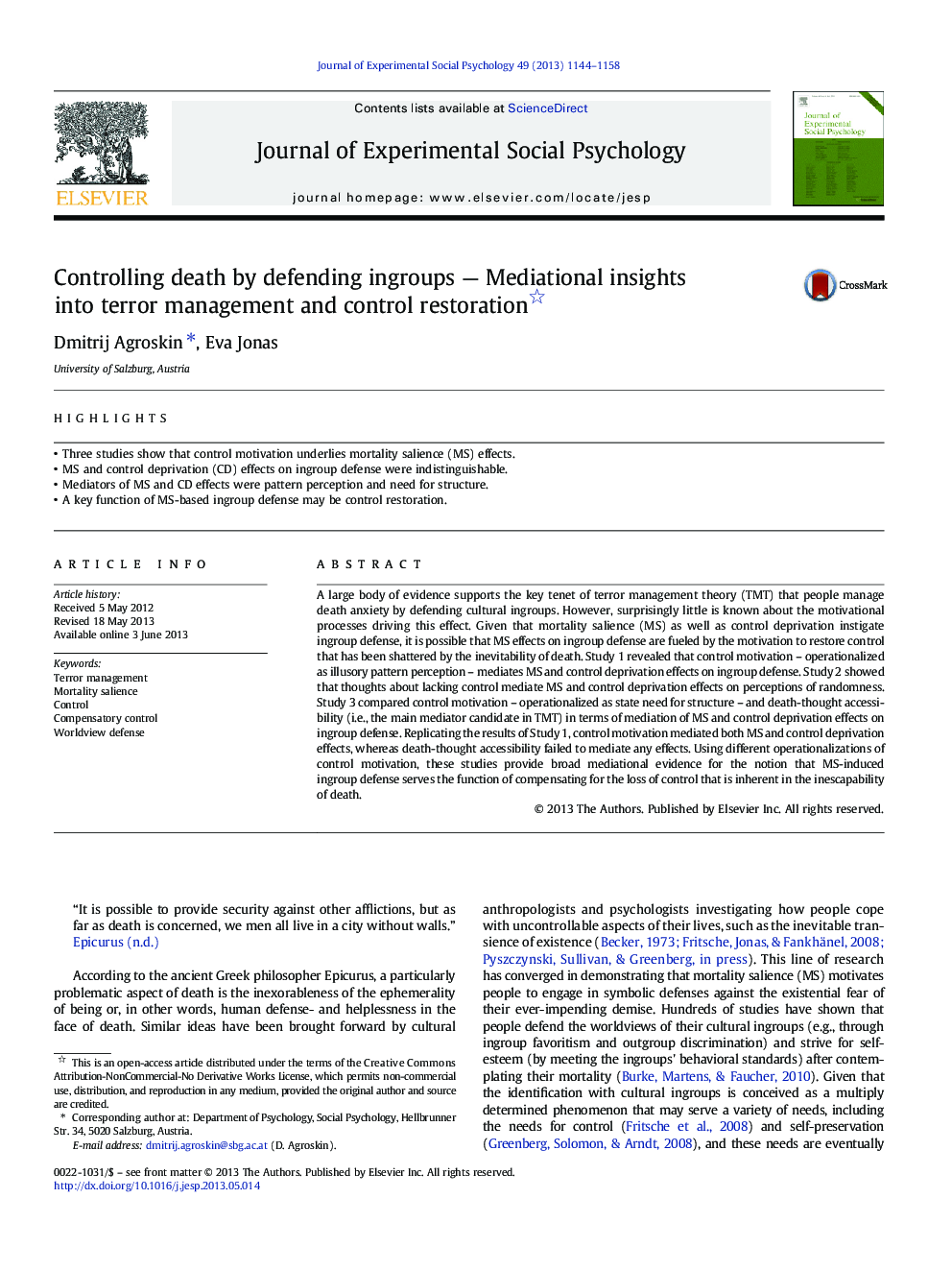| Article ID | Journal | Published Year | Pages | File Type |
|---|---|---|---|---|
| 10468565 | Journal of Experimental Social Psychology | 2013 | 15 Pages |
Abstract
A large body of evidence supports the key tenet of terror management theory (TMT) that people manage death anxiety by defending cultural ingroups. However, surprisingly little is known about the motivational processes driving this effect. Given that mortality salience (MS) as well as control deprivation instigate ingroup defense, it is possible that MS effects on ingroup defense are fueled by the motivation to restore control that has been shattered by the inevitability of death. Study 1 revealed that control motivation - operationalized as illusory pattern perception - mediates MS and control deprivation effects on ingroup defense. Study 2 showed that thoughts about lacking control mediate MS and control deprivation effects on perceptions of randomness. Study 3 compared control motivation - operationalized as state need for structure - and death-thought accessibility (i.e., the main mediator candidate in TMT) in terms of mediation of MS and control deprivation effects on ingroup defense. Replicating the results of Study 1, control motivation mediated both MS and control deprivation effects, whereas death-thought accessibility failed to mediate any effects. Using different operationalizations of control motivation, these studies provide broad mediational evidence for the notion that MS-induced ingroup defense serves the function of compensating for the loss of control that is inherent in the inescapability of death.
Related Topics
Life Sciences
Neuroscience
Behavioral Neuroscience
Authors
Dmitrij Agroskin, Eva Jonas,
